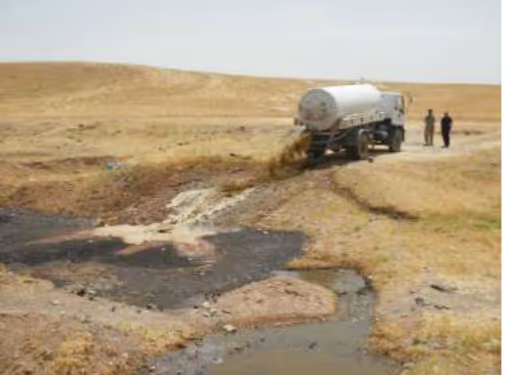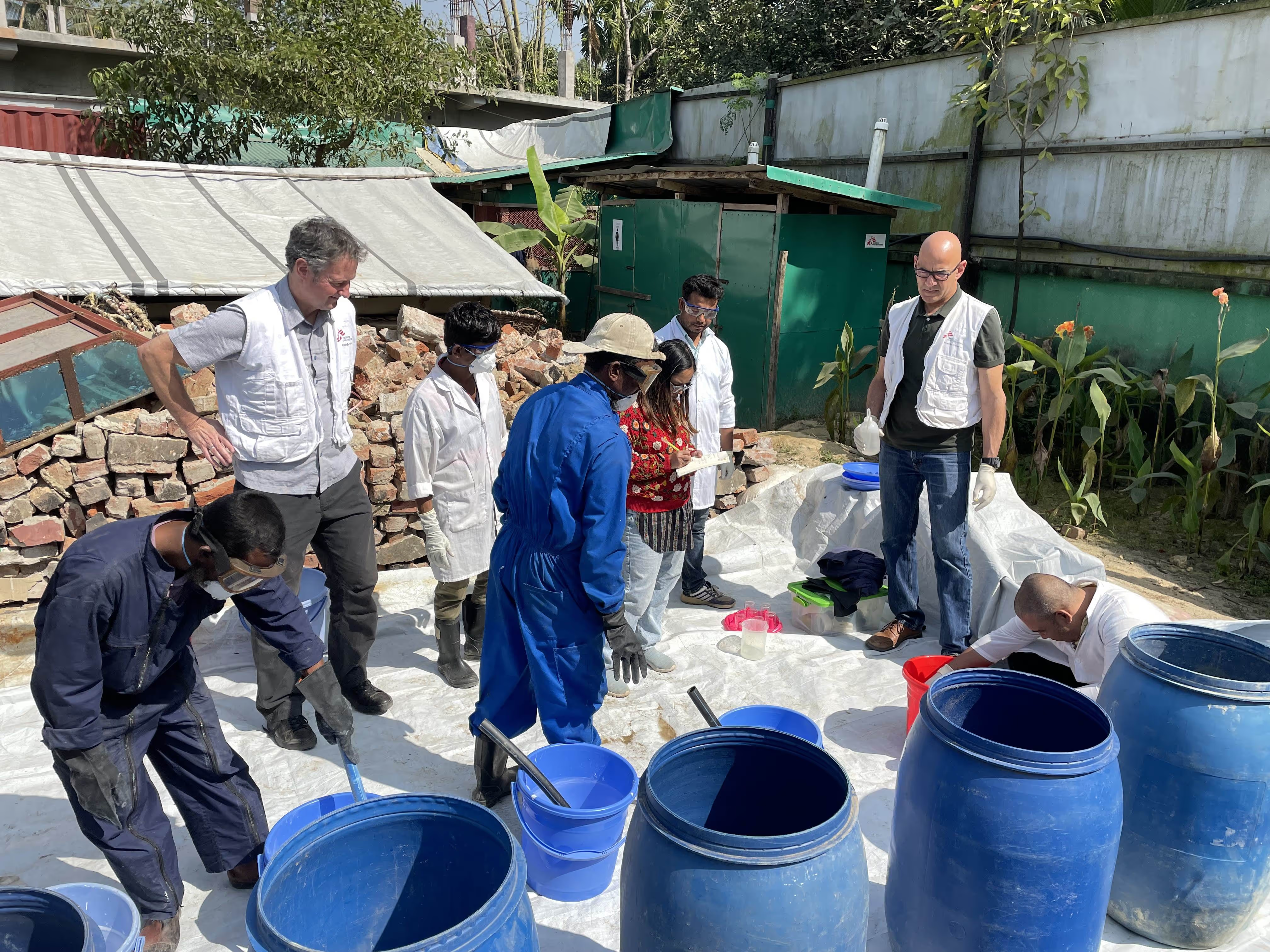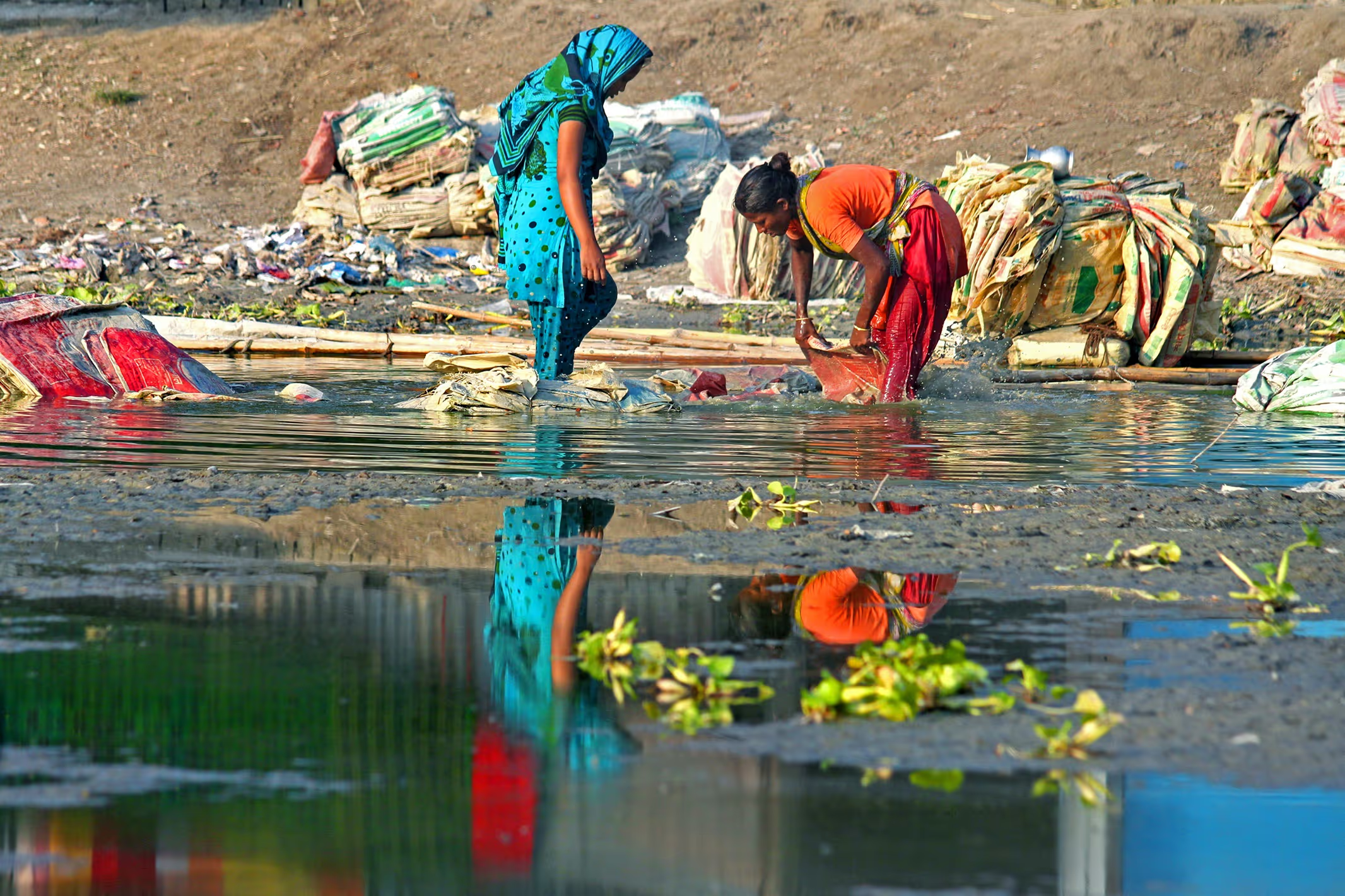Preparing to be unprepared: Developing guidance on faecal sludge management (FSM) in emergencies

Existing guidelines on emergency sanitation management insufficiently address the management of human waste and faecal sludge, including the treatment and safe disposal of waste. This is particularly true during the first phase of rapid onset emergencies.
Current guidance on emergency sanitation management focuses on latrine construction. It is limited in its consideration of safe emptying practices, transport, treatment and disposal of waste. It also fails to provide links between different technologies to indicate how they function together.
Click here to see what areas of sanitation system design are often missed in the emergency phase.
What was the project aim?
This research project aimed to contribute towards larger efforts to build credible evidence and increase understanding of the current proven sanitation solutions in the emergency context. It did this through two components which aimed to:
- investigate and compile what options have been proven for applications in the emergency context.
- understand what are the driving forces behind the decisions made on faecal sludge disposal in first phase emergencies at the field level.
The findings of this research will inform the following actors working in WASH, regarding faecal sludge disposal options and selection of appropriate solutions in emergencies:
- practitioners (planners, managers and implementer)
- organisations
- stakeholders (including donors)
- researchers and students
The research will inform the development of guidance, which will address the second component of the HIF challenge—dissemination. The intended audience and stakeholders for the final guidance document are humanitarian practitioners who plan, manage or are involved with supporting WASH responses.
What methods did we use to carry out the research?
BORDA investigated why few existing guidelines comply with the decision-making process of practitioners. They reviewed 57 guidelines on 8 different technologies for managing faecal sludge in emergencies. They also conducted an online survey with 93 responses, on current practices and sources of FSM decision-making with field practitioners. BORDA also held 14 semi-structured interviews with practitioners to understand their decision-making processes, needs and limitations in the field.
What did we find?
- Survey results indicated that practitioners generally approve of the use of guidelines. However they have the perception that existing guidelines lack context specificity and may delay implementation or inhibit innovation when consulted.
- Respondents reported consulting the Sphere guidelines (64%), internal organisational guidelines (55%) and Cluster guidelines (53%) or going to peers for advice.
- Online webinars and courses are not widely utilised.
- Respondents rely heavily on their own experience or consult technical advisors for decision making, both of which could reinforce existing limitations. About half of the time, decisions on WASH are not made by WASH specific staff but by generalists at management level.
Click here to view a bar graph of findings on guideline access and contents.
What is the impact and next steps?
The findings have been published in a report available online, and will be widely shared with the WASH community.
In collaboration with Solidaritiés International an online platform called OCTOPUS is being established. This platform will provide quick and easy access to guidance and support in decision making processes around FSM. The platform includes a peer-to-peer exchange and review function and will be launched in the near future.
Photo caption: Sludge being dumped into an open water body close to a community in the Kurdish Region of Iraq. Credit: BORDA
Stay updated
Sign up for our newsletter to receive regular updates on resources, news, and insights like this. Don’t miss out on important information that can help you stay informed and engaged.
Related articles



Explore Elrha
Learn more about our mission, the organisations we support, and the resources we provide to drive research and innovation in humanitarian response.